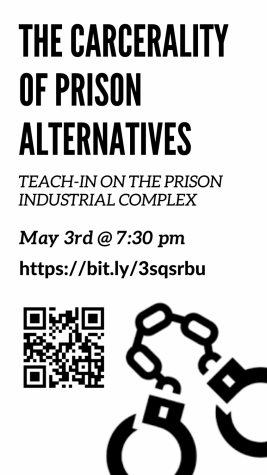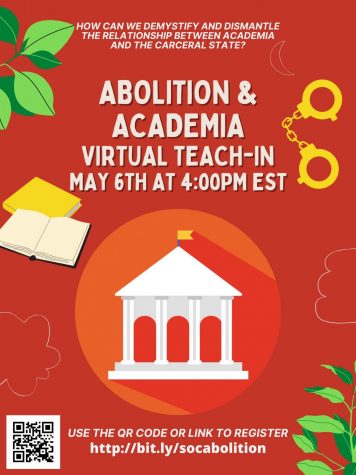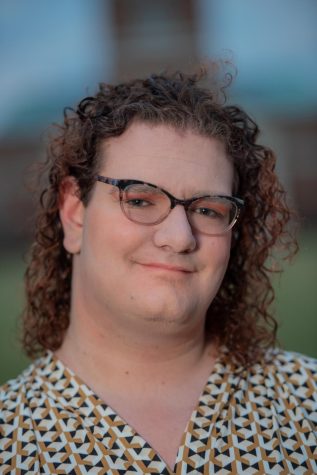Sociology class holds teach-ins
Students in a Sociology 390 class will be hosting teach-ins for the community as a final project
April 29, 2021
Those who believe in the power of student activism know that it always has a place in society — but certain movements, certain eras, seem to call out for student engagement. Eras like the 1960s, where students from the Student Nonviolent Coordinating Committee (SNCC) waged a peaceful war against segregation — including a famous sit-in at a Woolworth’s lunch counter in nearby Greensboro, N.C. With appalling examples of racism and police violence dominating headlines and social media feeds, many say the need for youth activism, especially by university students, is greater than ever.
Enter: Assistant Professor of Sociology Dr. Brittany Battle and her Sociology 390 class.
The class, formally titled Defund, Transform, Abolish?: (Re)Imagining Justice, has been examining texts on abolition all semester long, but it is the final project that is particularly compelling. Battle, who is the co-founder of the local group Triad Abolition Project, has assigned her students to lead teach-ins for members of the Wake Forest community (and beyond).
Teach-ins, according to Pedagogy & American Literature Studies, are when a person speaks about a social justice topic they have gained familiarity with for the purpose of educating a community (usually of fellow activists). These education sessions helped galvanize the youth-led social movements of the 1960s, Marshall Sahlins wrote for The Nation.
“Part of the practice of abolition is about existing in community and about community education and community engagement,” Battle said. “I really wanted all of the assignments, but certainly the final, to really reflect that process.”
“Teach-ins are something that my organization does a lot,” Battle continued. “A lot of abolitionist organizations and a lot of organizations that are just committed to social justice and racial equality hold teach-ins. Teach-ins have been happening for a long time and they’re happening now, possibly more frequently because Zoom is the norm now.”
Battle decided to teach the course as an effort to bring abolition into the classroom, where she believes it has been largely absent.
“Abolition is part not only of my activism but my scholarship,” Battle said. “So I thought it would be interesting to teach this course and have it contribute to the crime and criminal justice concentration in the Sociology Department.”
Junior Chris Cates, whose group is teaching-in about how Wake Forest upholds systems of racism and violence in Winston-Salem, believes that teach-ins are a perfect way to encapsulate the work the class has done this semester.
“All semester, we have learned about the various ways that communities and organizers have gained knowledge from one another in collective ways such as this,” Cates said. “So what better way to end off our semester than to give back to the community by giving crash courses on some of the material we have covered in this class?”
Sophomore River Cook’s group is leading a teach-in on the role of the carceral, or police state, in academia. They said their biggest challenge in getting ready for the teach-in was preparing for a public speaking role.
“For me, the biggest challenge has been internal,” Cook said. “Because you don’t know a majority of the people listening to you talk, and it’s over Zoom so a lot of people will have their cameras off.”
Senior Eli Krakow took the course because he wanted to dive deeper into issues of abolition that were raised over the summer. He is leading a teach-in on how alternatives to prison often end up reinforcing the same racist systems that prisons do.
“I found that abolition was still on my mind, so I wanted to go beyond the general ideas and more into specifics,” Krakow said.
Cook also emphasized the importance of teach-ins on Wake Forest’s campus and explained how the experience of bringing abolition out of the classroom — through debate and courses — and into the surrounding world.
“[In high school and early college], I primarily engaged in the academic side of abolition; like reading the literature,” Cook said. “I hadn’t engaged much in the activist community, and partially because of this class, I’ve become much more involved in Winston-Salem and my hometown of Austin, Texas.”
“The biggest thing that I had to be aware of was meeting people where they’re at and being attuned to different people’s circumstances,” Cook added. “Even if I have access to all of these resources, it’s very important to find ways to demystify academia and make it so that the knowledge being produced is accessible to everyone.”
The other teach-in topic is “Reimagining Conflict After COVID”.
Battle, who advertised the teach-ins on her Twitter feed, noted that the reception has been incredibly positive, with people both in and outside of the Wake Forest community expressing interest. Among the 175 users who have retweeted Battle’s post is Mariame Kaba, a famous modern abolitionist who wrote “We Do This ‘Til We Free Us”.
Wake Forest students are welcome to attend the teach-ins, the flyers for which will be attached to this article online.


























